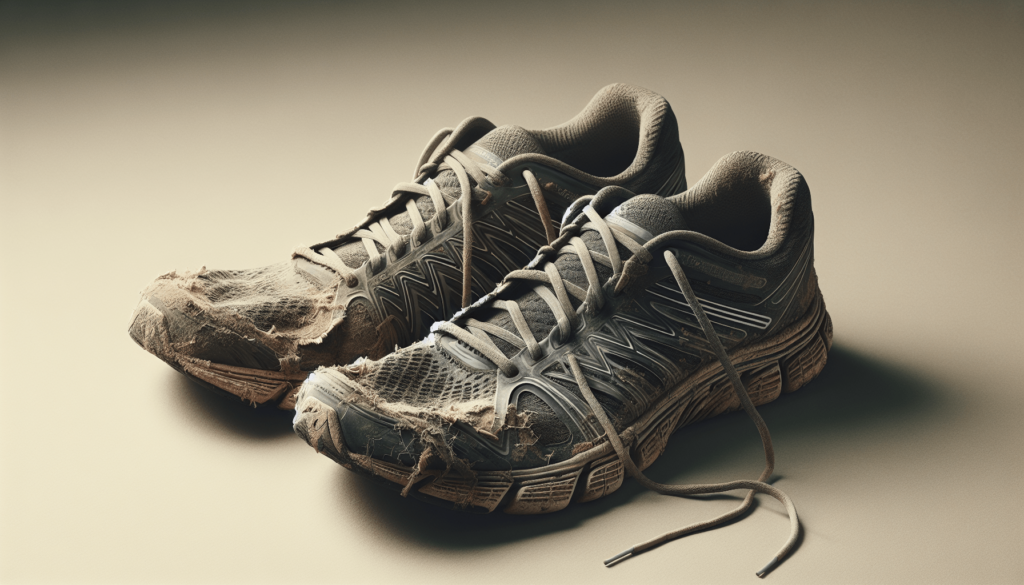Have you ever felt like your muscles are conspiring against you, plotting a coup every time you attempt that extra set or decide to add an additional mile to your run? It’s as if they’re whispering to each other, “Oh no, not again with the extra lunges. We’ve done our time!” If so, you might be waltzing dangerously close to the land of overtraining. It’s the kind of place where enthusiasm meets cartilage failure, and your energy levels plummet faster than your interest in gym selfies.
What on Earth is Overtraining?
You know that old saying, “Too much of a good thing can be wonderful”? Well, not in this case. Overtraining is essentially your body’s passive-aggressive way of telling you to take a chill pill. You push yourself too hard in your workouts, so your darling muscles respond like teenagers, slamming the door to recovery and refusing to come out until you give them a break.
Symptoms That Should Set Off Your Inner Alarm Bells
Navigating through overtraining isn’t like traipsing through a field of daisies. It’s more akin to dragging yourself through a marshmallow swamp – slow, sticky, and frustrating. The symptoms are pretty much your body’s way of sending SOS signals. So what are these signals?
- Constant Fatigue: It’s the kind of tired where even your hair feels sleepy.
- Decreased Performance: Your treadmill times tank faster than the latest flop at the box office.
- Mood Swings: One second you’re a pond of tranquility; the next, you’re launching a grumpy rage about how your socks aren’t the same shade of white.
- Frequent Soreness: Your muscles act like they’ve starred in an uncredited role in the Rocky franchise.
The Signs Your Body Wants a Recess
Imagine it this way: if your body had a mouth (other than the one you’re stuffing full of protein shakes), it would be constantly screaming for a break. The good news? You don’t need an interpreter. Listening to your body is as easy as ignoring your need for social interaction on a rainy weekend.
Why Does Overtraining Happen?
Do you have ambitions of becoming the next Iron Man without the help of a shiny suit or Robert Downey Jr.’s charm? That might be part of the problem. Overtraining often occurs because we expect our bodies to perform like high-tech machines instead of the admittedly mushier, lazier biological entities they actually are.
The Pressure of Social Media
With every scroll on Instagram, it seems like everyone else is benching sharks or scaling mountains sans Sherpa. Is it any wonder you feel the need to push yourself through another relentless cycle of squats and self-doubt? But here’s the thing—those glistening bodies you’ve seen post-workout are probably not secretly weeping into their kale salad because of tendon pain. Or maybe they are. It’s hard to tell with kale.
Watch Out for FOMO
Have you ever felt the overwhelming fear that everyone else is at a party called “AMAZING RESULTS” while you’re stuck in “Plateau City”? That’s the constant companion known as FOMO (Fear of Missing Out). In our fitness world, it can coax you into more reps and less rest, nudging you closer to the brink of overtraining despair.

How to Sidestep the Overtraining Trap
Herein lies the golden goose of the matter: it’s possible to summon the great power of moderation. It’s this mythical concept where you find balance, enhance gains, and, best of all, avoid hobbling around like someone who’s misplaced their orthopedic sandals.
The Art of Listening (to Your Body, Not Your Audiobook)
Maybe you pride yourself on being able to juggle multiple tasks, like jogging while catching up on “Moby-Dick”. But multitasking is useless if you’re missing the most crucial voice of all—your body’s. When whispers turn to shouts, it’s time to heed the message.
Prioritize Rest Days
Here’s a thought sent straight from the spa treatment menu—rest days are paramount. And yes, they can be an elite athlete’s best friend. Picture this: while you’re sprawled on the couch watching reality TV in your stretchy pants, your body is busy rebuilding, repairing, and reenergizing. This dynamic duo of relaxation and recovery is more surprising than discovering that your cat actually understands you.
| Type of Activity | Suggested Rest Time |
|---|---|
| Weightlifting | 48-72 hours per muscle group |
| Cardiovascular | 24-48 hours |
| High-intensity Interval Training (HIIT) | Minimum of 48 hours |
Reconsidering Your Workout Schedule
Rethink a schedule so overambitious even Usain Bolt would give it side-eye. Build a repertoire that balances downtime with activity. Picture scheduling Muscle Mondays, followed by Netflix-Inspired Naptime Tuesdays. This balance might be exactly what the overtraining fairy ordered.
Mix It Up
Ever tried to spice up your monotonous workout routine? Enter cross-training, where biking, swimming, and yoga meet like awkward relatives at a mandatory wedding. Incorporate a variety and watch your body thank you for the diversity like you’ve just given it a pair of noise-canceling headphones.

Nutrition: The Unsung Hero
Let’s not forget the secret weapon in your arsenal: food. While you’re busy putting sweat equity into your workouts, think of nutrition as the high-octane fuel you need to keep this workout bus running.
Memorable Meals and Snacks
Instead of snacking on empty promises from a sugar-packed snack bar, nourish your body with balanced meals. Because remember, nothing says, “I’m taking care of my temple” like a post-run smoothie loaded with greens instead of gummy bears.
- Proteins: The building blocks of muscle, like adding bricks to your biceps.
- Carbohydrates: Energy providers, just don’t mistake them for a green light to inhale a pasta mountain.
- Healthy Fats: Contrary to what your 90’s diet books told you, these help with recovery and immune function like a well-tuned army.
The Mental Game of Avoidance
Your mental state plays a larger role in your training than a personal trainer shouting motivational clichés about pushing limits.
The Power of Positivity (and Puns, Obviously)
Your outlook can fuel or hinder your training efforts. If you approach rest days like you’re Olivia Pope handling a scandal, they’re more manageable. So, write yourself inspiring notes, the kind you’d leave for a roommate you actually like.
Don’t Shun Meditation
Picture a mischievous child given five minutes to sit silently, only now, the child is you. Introducing meditation into your routine helps with patience, discipline, and that elusive practice of resting. Who knew inner peace pairs perfectly with muscle gain?
Knowing When to Seek Help
Acknowledging that the wheels are coming off isn’t a sign of defeat; it’s wisdom in disguise. If you’re consistently marooned on Muscle Ache Isle, it might be time to reach out for some professional help. Contrary to popular belief, consulting a fitness professional does not make you the weakest link.
Onward with Professional Guidance
A certified trainer or rehab specialist can give you personalized advice tailored to your specific needs. Think of it as unlocking a cheat code in the game of gains. Plus, they’ll probably laugh at your dad jokes, adding them to the bill as an optional fee.
In Conclusion: Flaunt Your Fitness Sans Overtraining
Moral of the story? It’s a little message slipped into your protein shake: balance is key. Enjoy those endorphin rushes, but remember to blend them with all the R ‘n’ R vibes as seamlessly as peanut butter melds with jelly. Embrace progress, but not at the expense of health. After all, your muscles, like certain computer-based assistants, can only handle so much “work” before simply needing to reset.
So, brave fitness warrior, flaunt those biceps responsibly and listen to the sage-like whispers of your body’s sorebiceps. Because, let’s face it, you’ve got a lifetime of workouts ahead, and achieving fitness greatness tomorrow is no good if you’ve completely dismantled yourself today.
